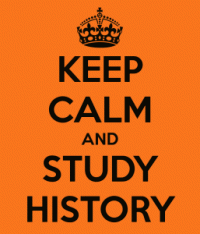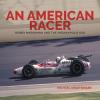Here is what appeared in the SAH Journal regarding the 2015 Jean Argetsinger Symposium:
On 17 October 2015, the Society of Automotive Historians and the International Motor Racing Research Center joined forces to host the inaugural Jean S. Argetsinger Symposium for International Motor Racing History in Watkins Glen, New York. The program featured three speakers presenting papers along with a keynote address to an audience of well over 70 people on a pleasant Fall Saturday in the small, historic village located at the southern end of Seneca Lake.
The symposium was the result of a number of years discussion regarding the hosting of an event that would allow members of the academy an opportunity to present scholarly papers on topics related to automotive competition history. Thanks to the efforts of those at the International Motor Racing Research Center and the International Motor Sports History Section of the Society of Automotive Historians, what was long an “interesting idea” was transformed into reality.
The welcome for the symposium was given by the president of the International Motor Racing Research Center, J.C. Argetsinger. Mr. Argetsinger thanked those in attendance for taking the time to attend as well as extending a welcome from Mrs. Jean S. Argetsinger, for whom the symposium is named, who also happens to be his mother. The chair of the International Motor Sports History Section of the Society of Automotive Historians, H. Donald Capps, also extended a welcome to those attending and those taking the time to present their papers.
The moderator for the event was Dr. Patricia Lee Yongue, an associate professor in the English Department at the University of Houston, where she is a specialist in modern American literature and culture and in women's studies. In addition, automotive and motorsport history and culture are a part of her professional activities, which includes serving on the board of the SAH and past chair of the International Motor Sports History Section.
The first paper presented was, “National Aspirations, Regional Trajectory? Sports Car Competition in Atlantic Canada, 1945 to the Present,” by Professor David A. Charters, retired professor of military history at the University of New Brunswick. Dr. Charters is the author of The Chequered Past: Sports Car Racing and Rallying in Canada, 1951-1991 (2007), and of The British Army and Jewish Insurgency in Palestine 1945-47 (1989), and co-author of Kandahar Tour: The Turning Point in Canada’s Afghan Mission (2008). Dr. Charters’ presentation considered a number of the macro forces that launched the sport of automobile racing in Canada after World War II by focusing on several themes of the national sports car racing experience. It was an excellent look at a topic
The second paper was given by Paul Baxa, associate professor of history at Ave Maria University. Dr. Baxa’s paper was entitled, “Death on a Sunday Afternoon: The Tragedy of the 1928 Italian Grand Prix and the Debate over Autodromes.” Professor Baxa used the motif of the race to examine the context of the event, in which a driver and 27 spectators died, paying particular attention to the role of the Fascist government and other influences in Italian motor sports, the Vatican in particular. The presentation covered not only the repercussions of the incident, but also ranged to the architecture of the autodromes and the influence of Fascist ideology on their design.
Douglas Leighton, an associate professor of history at Huron University and a former president of the SAH, delivered the third paper of the afternoon, “Sports Car Racing in Southwestern Ontario, 1945-1970: The Evolution of a Sport and Regional Society After World War II.” Dr. Leighton’s presentation discussed the background for the rise of the sport in the decades following World War II, and then explored the case of the sport in Southwestern Ontario, noting the decline of amateur racing efforts and its eventual replacement by professional racing during this period.
The keynote address for the symposium, “American Road Racing 1895-1940,” was given by Joe Freeman, former president of the SAH, the originator of the International Motor Sports History Section, and the owner of RaceMaker Press. The presentation was an excellent essay on road racing and its role on the American racing scene prior to World War II. Freeman’s interpretations and comments during the presentation provided insight into the rise and decline of road racing during this period, resulting in a an excellent discussion during the question and answer period.
The symposium is named for the wife of the late Cameron R. Argetsinger, the organizer of the first road race held in the United States after World War II and who was responsible for bringing the United States Grand Prix to Watkins Glen in 1961. Mrs. Argetsinger was a full partner in Cameron Argetsinger’s work regarding the races at Watkins Glen, helping with many of the activities associated with the events, along with raising nine children and being involved in a number of civic activities. Among those many activities, it was the public library in Watkins Glen that attracted much of her attention, serving on its board. The complex that houses the Watkins Glen Public Library and the International Motor Racing Research Center is named in her honor.
The International Motor Racing Research Center was founded in 1998, as the Motor Racing Research Library at Watkins Glen. The driving force behind the effort was Mrs. Argetsinger. With the support of Watkins Glen International and the International Speedway Corporation, John Bishop, the founder of the International Motor Sports Association, and a number of others involved in the sport, the effort pushed forward. In June 1999, the Research Library opened its doors to the public. To better reflect its mission and purpose, the Motor Racing Research Library at Watkins Glen changed its name to the International Motor Racing Research Center soon after its opening.
Beginning as a small collection of books relating to motor racing on a shelf in the library, it soon grew to several shelves and then an alcove. The current facility is shared with the Watkins Glen Public Library. Future plans include an expansion of the facility to house its many books, archives, and other materials. The Research Center is the repository of the records of the Sports Car Club of America, with an effort underway to catalogue this throve of material. The late editor of National Speed Sport News, a periodical dating back to 1934, Chris Economaki, left its archives to the Research Center, providing bound copies of the periodical and literally thousands of photographs to the center’s already large collection of images. The Research Center also hold the archives of the International Motor Sport Association.
Among the several activities that the Research Center initiated after its opening was to host a series of Center Conversations, monthly talks given by a variety of figures within motor racing and a number of auto racing historians. Among the latter have been, to name but a very few, Doug Nye, Karl Ludvigsen, Michael Lynch, and Donald Davidson.
The symposium could not have been possible without the help and support of many people. The coordinator, director of logistics, and general all-around Ms. Fixit for the symposium was Glenda Gephart, the Director of Administration and Communications at the Research Center. Her tireless efforts supporting the symposium included not only preparing the Call for Papers, but its distribution, along with making all the arrangements for the speakers and the supporting activities. Mrs. Gephart also led the way in securing the support of the Watkins Glen Chamber of Commerce for the event. She was assisted in all this flurry of activity by the able staff at the Research Center, Kip Zeiter and “Sam” Baker, along with Josh Ashby. The able support and guidance of the Research Center’s resident historian, Bill Green, is also much appreciated. The symposium was held in the auditorium of the Watkins Glen Elementary School, their support this event also being very much appreciated.
Without the staunch support of the president of the Research Center, J.C. Argetsinger, it is unlikely that the symposium would have seen the light of day. The late Michael Argetsinger, a member of the Research Center’s board and major force in bringing the symposium to a reality, unfortunately lost his battle to cancer several months prior to the event. As one of those who originated the idea for the symposium, Mike’s absence was felt by many of those attending. Mr. Argetsinger, the noted author of five books, was scheduled to give the keynote speech for the symposium. That Joe Freeman stepped in and replaced Mike with relatively little notice is deeply appreciated.
The great support provided by Dr. John Heitmann, the immediate past-president of the SAH, as well as the current SAH president, Andy Beckman, and the members of the board of the SAH, made the symposium possible. The SAH board deserves the many thanks and the gratitude of all those who participated or supported the symposium for its support of this effort.
The second Jean S. Argetsinger Symposium for International Motor Racing History is scheduled for Saturday, 12 November 2016. The Call for Papers will be issued early this Spring with a submission date of on/about 15 August 2015. All members of the SAH with an interest in automotive competition history are encouraged to consider submitting a proposal for the 2016 event.
It is also being proposed that the SAH International Motor Sports History Section hold a meeting in conjunction with the 2016 Argetsinger Symposium. This meeting would be held a day earlier than the symposium, with the possibility of activities being planned at the Watkins Glen International facility.
The International Motor Racing Research Center will be the permanent home for the Argetsinger Symposium. Future Argetsinger symposia will be scheduled in the early-to-mid-November timeframe.
Edited by DCapps, 06 August 2016 - 13:49.














